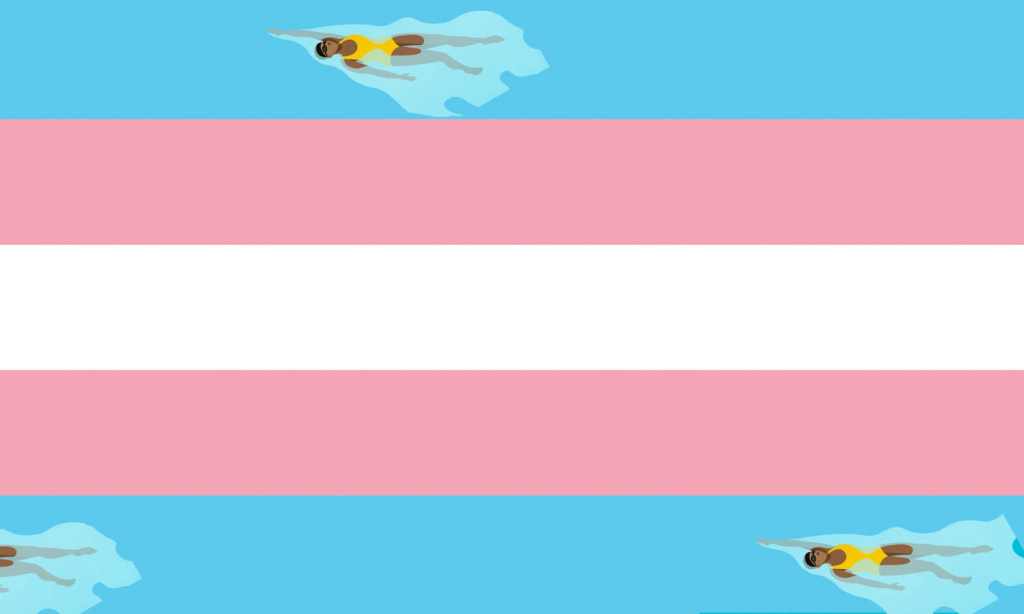When the International Swimming Federation slashed the amount of transgender women that can compete in its competitions, some huge shockwaves rumbled through Australia. This makes sense. After all, we’re a nation of swimmers. We paddle in our pools on hot summer days, we float down regional rivers, and we even fight the winter sea whilst naked at Dark Mofo.
However, it’s important that we don’t get lost in the noise that this announcement has sparked. Instead, we should focus on the folks that this decision will impact the most. We all have to understand how this ruling will impact the wellbeing of Australia’s LGBTQIA+ Community, in particular, its trans and gender diverse members. The Latch interviewed Transgender Victoria’s CEO Mama Alto about this subject and learnt a lot of incredibly useful info. Here are some of the big queries I had paired with some top-notch answers:
What Will This Ban Mean for Trans Women?
The International Swimming Federation (FINA) is explicitly banning trans women from competing in women’s swimming categories if they’ve “experienced any part of male puberty beyond Tanner Stage 2 or before age 12.” Alto believes that this call will not only limit the amount of Australian trans women from competing, but it’ll also be a hindrance for many trans women across the globe.
Alto said, “Access to puberty blockers at this age during a gender transition or affirmation journey is a difficult and inaccessible process, with inconsistencies around the world. This decision will create inequality, disadvantage and barriers to trans people based on that access — based on their financial, geographic and sociopolitical situation — and that’s a tragic outcome.”
This Decision Could Hurt Local Swimming Comps
FINA wants this ban to potentially have a wider impact that affects competitions outside of its jurisdiction. In its policy documentation, this committee declared, “FINA recommends that organisers of recreational (non-competitive or non-elite) Aquatics events consider their local circumstances and goals in their determination of whether or not separate sex competition is also necessary for them.”
But Alto urges that our local comps don’t follow in FINA’s footsteps. She said, “In terms of how FINA’s decision creates a precedent, whilst FINA has now made this decision for elite sports competitions, it is vital that community sports takes a different approach.” Alto then went on to explain, “This decision is made in the context of elite, professional, global competition – such as at Olympic level. For community sports, it’s about so much more than just competition: it’s about participation, inclusion, community-building, health and wellbeing.”
Trans and gender diverse people already face an onslaught of discrimination in Australian sporting communities, so this situation would only get worse if other swimming organisations and sports started implementing their own FINA-style policies. For instance, Australia’s first openly gay footballer, Andy Brennan, told The Latch in an interview, “In a recent study, 70% of people felt that transgender or gender diverse people would not be welcome in their club.” Here’s the rest of that illuminating interview: Andy Brennan on What It Was Like Becoming Australia’s First Openly Gay Footballer
Moreover, LGBTQIA+ people are excluded in so many other community settings. A notable one that comes to mind is how they are vilified in religious contexts. Learn more about this subject here: Inside the Devastating Trauma LGBTQIA+ People Suffer in Religious Settings
FINA’s Call Will Hurt More Than Swimmers
When discriminatory decisions like this are made, it doesn’t hurt a select few people, it dramatically hurts the whole community. As Alto expressed, “Trans and gender diverse people are already a marginalised and vulnerable group.” This is because these folks experience stigmatisation, discrimination, and violence that lead to poorer mental health outcomes. “The data shows this,” explained Alto. “Such as in the Private Lives and Writing Themselves In studies.”
Therefore, FINA’s policy is being felt by the wider trans and gender diverse community, as it adds fuel to the ostracisation and othering fire. Alto said, “Decisions such as this — and the subsequent media coverage — further compound that discrimination and dramatically impact health and wellbeing.”
It’s also worth noting that this decision was made during Pride Month, a time when LGBTQIA+ people commemorate who they are and what they’ve overcome. “There’s a level of insensitivity that this decision was made by FINA — prompting subsequent decisions from IRL (International Rugby League) and reportedly many more sporting bodies considering their own policies — during Pride Month,” noted Alto. “It’s certainly a reminder that Pride is not only about celebrating, but also advocating and educating for our equality.”
What Can LGBTQIA+ Allies Do to Help?
So, what should you tell your trans and gender diverse pals during this trying time? “The best thing to say is that you support them — and then back that up with allyship through meaningful actions,” stated Alto. “We are facing a global situation of anti-trans ideology — we need our allies to reject this, to speak out against it.” This means it’s time for you to donate to rad organisations like Transgender Victoria, attend pro-LGBTQIA+ rallies, and call out anti-trans rubbish in your everyday life.
Read more stories from The Latch and subscribe to our email newsletter.

